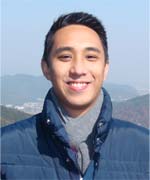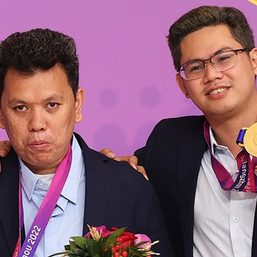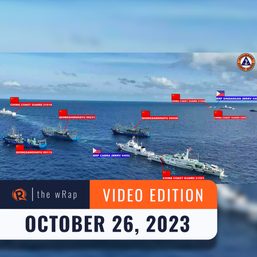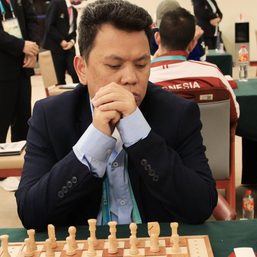SUMMARY
This is AI generated summarization, which may have errors. For context, always refer to the full article.

One of the first lessons we learn from public policy school is that policymaking always operates under incomplete information and uncertainty: there will always be inadequate information in making public policy leading to a cognitive constraint referred to as “bounded-rationality.”
In an ideal situation, governments should fill this gap by seeking in-house or outsourced advice from experts, people and institutions that have some specialized training to facilitate better information gathering, analysis and policy design. A more sound and a more diverse policy advice creates lesser policy mistakes that in the worst case scenario may mean that we lose millions of precious lives.
An unprecedented set of problems has faced the Philippines especially at the beginning of the current Aquino administration such as international power transitions, the consolidation of the ASEAN, climate change and the rise of non-state threats like terrorism, epidemics, among others, all of which require both a political and an international analytic paradigm.
While the number of problems has increased, the Philippine government’s analytic capabilities to respond to these concerns have largely remained subpar.
Why, instead of pooling against a weak China, did East Asian states like Japan, Korea and Vietnam choose to cooperate during the 16th century? How do we understand the decisions and concomitant processes of a rising China and a declining United States? What is the best foreign policy for small states like ours in the backdrop of an emerging polycentric world order? What are the implications of the new multilateral development banks led by emerging countries to the ASEAN? How do we in fact consolidate the ASEAN? Is it even possible?
All these questions are profoundly political and defy any indifferent non-scientific attempts at analysis. Yet to my knowledge, there is not a single political scientist that was deputized by the Aquino administration to come up with foreign policy proposals say, in response to China.
We only have very few private institutes, and I think there is only one government think tank that can give proper foreign policy advice. In intense issues like maritime and territorial disputes, there tends to be a lot of noise that can drown real advice. At the very least we need to seek those who are trained in political sciences and its allied disciplines. While admittedly few, we have a couple of world-renowned scholars and political scientists in the Philippines but they remain outside of the purview of policymaking.
Dearth of international political analysis
One potential explanation is that we’re stuck on our “insular” “strategic culture.”
In this lens, we have sustained a “non-international” and “non-political” intellectual culture since we were protected by the economic and political security umbrella of the United States formally and informally. As such, we have put our policy focus on domestic economic development and dealt with internal insurrections of communists and radical Muslim separatists. We thus have become complacent in our international political affairs. We did not need trained international political analysts because the answer was quite ready for us: focus on economics, the rest will follow.
Partly as a consequence of the former, we are unable to see the relevance of political sciences as a powerful source of expert policy advice. There are many ways we can see this. One, social and political sciences are used merely as a stepping stone for graduate level legal studies. For economic reasons or otherwise, this thus creates a subtle and subliminal message that the study of political science is not in itself a worthy field of specialization except if used as a platform for graduate legal studies.
This, of course, is a profoundly naïve and mistaken view. This low level of interest is also state-sponsored: a lack of investments in political research and the absence of social and political scientific subjects in the K-12 curriculum.
Although these reasons are not exhaustive, we can surmise that there exists a socio-psychological hindrance to advancing a political scientific foreign policy culture.
Preview of US and China
It seems that the Philippines is far from the practices of both China and the United States in using political scientific policy advice.
For example, the United States has over 1,000 scholarly research units and about a hundred of them are in Washington. Some of them are party funded but most are funded by philanthropic and corporate organizations. Not to mention universities that have well-endowed schools of governments, public affairs and international relations who are big players in the policy discourse through publishing important research works in the form of books and journal articles. Social and political sciences also receive generous government-sponsored funding for research which is often used for policy-relevant purposes.
Staffed by university professors and scholars, experienced and trained analysts and people with specialized training in social and political science, they provide policy advice which will then be deliberated by the National Security Council, the Cabinet and the President with the final decision from the president. The Cabinet and the National Security Council themselves are staffed with analysts and university professors.
While being on different sides of history, Dr. Henry Kissinger, Dr. Condoleezza Rice and Dr. Madeline Albright have something important in common: they were all once top university-based political scientists and professors who prominently shaped the foreign policy of the United States.
The story of China is much more different. But it is similar to the United States in that China saw the need to invest in social and political sciences to promote policy-analytic advice and more sophisticated policy designs. Three important advisory level departments are involved in foreign policy analysis: the Ministry of Foreign Affairs (MOFA), Ministry of State Security (MSS) and the International Department of the Communist Party of China’s Central Committee (IDCC). All of which have their respective foreign policy analysis units: the China Institute of International Studies (CIIS) and the China Foreign Affairs University (CFAU) of the MOFA; the China Institute of Contemporary International Relations (CICIR) of the MSS and the Chinese Academy of Social Sciences (CASS) of the IDCC supervised by the State Council.
Of course they have excellent university institutes and professors who also give advice. Dr. Wang Huning and Dr. Zhang Wei Wei of Fudan University in Shanghai and Dr. Yan Xeutong of Tsinghua University in Beijing are examples of scholars and university-based political scientists who are deputized by the elaborate foreign policy making establishment to advise and make foreign-policy.
In both countries, there is a serious appreciation for social and political sciences in policymaking. Analysts need not convince policymakers of their worth, it has always been a given.
Recent developments in PH
Important initiatives in knowledge-building for studies of international politics have started in the Philippines.
First is the establishment of a double-degree master-level program between De La Salle University’s College of Liberal Arts and Osaka University’s School of International Public Policy to train the next generation of Filipino international affairs scholars and analysts, an initiative led by Dean and Professor of Political Science Dr. Julio Teehankee. It’s an unprecedented feat as it is the first graduate-level double major partnership with a foreign university in the country.
Just last year, possibly the first private think tank that deals primarily with issues of foreign policy and international studies was launched in the namesake of the current Foreign Affairs minister: the Albert Del Rosario Institute of Strategic and International Studies (ADR Institute) led by De La Salle University Assistant Professor of Political Science Victor Manhit.
Specifically in China affairs, the Philippine Association for China Studies (PACS) and a few Filipino international relations experts in universities have been active in scholarly and policy dialogues here and internationally.
These are welcome positive steps for a country that grossly lack a body of specialized policy analysis on issues concerning political science and international relations. Hopefully, leaders heed advice from those who actually know. – Rappler.com
.
Add a comment
How does this make you feel?





There are no comments yet. Add your comment to start the conversation.